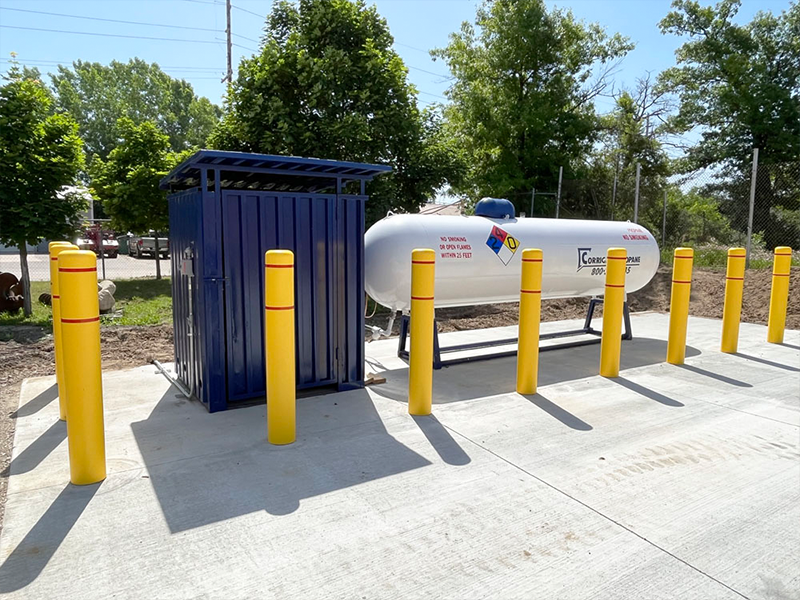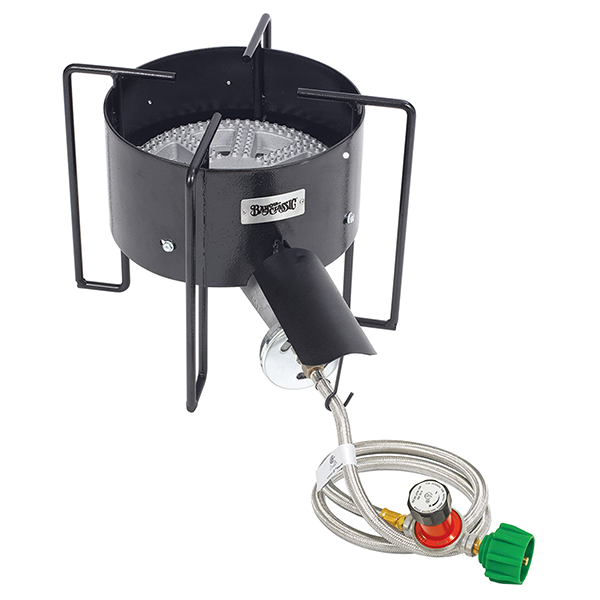Introduction
In recent years, the use of propane gas has significantly increased for various applications. From residential heating to commercial processes, propane gas has become a popular choice. Propane, also called LPG (liquified petroleum gas), is a preferred pick for its efficiency and usefulness. However, several concerns are raised about the impact of propane on both health and the environment. Let’s discuss the safety concerns and the environmental implications of using propane gas and the considerations that need to be noted by users.

What is Propane Gas?
Propane is a hydrocarbon gas extracted as a byproduct from processing natural gas and refining crude oil. Generally, it is used for heating, cooking, and powering devices like vehicles or heaters. Propane is stored in tanks which makes it popular for use in outdoor activities like camping and boating.
Propane Near Me: Accessibility and Safety
One of the key benefits of propane is its availability around the world. The convenience of buying propane is high as propane companies near you offer delivery services and propane tanks for sale. This accessibility ensures a reliable source of energy for users. However, it is important to follow safety guidelines when handling propane tanks during storage, transport, and use.
Propane Tank Safety
Propane tanks are available in different sizes such as 100-lb, 250-gallon, and even 500-gallon tanks. It is important to check that the conditions of the tanks are satisfactory to prevent any leakage or health hazards. Regular maintenance by certified individuals ensures safe propane use.
Propane Delivery: Convenience and Caution
Commercial propane delivery requires adherence to safety standards during transportation and delivery. Similarly, propane usage for heating or other small tasks also requires following the user guidelines given by the providers. It is essential to choose reliable propane companies. An individual planning to use propane should always research properly to choose trustworthy companies for propane installation and maintenance.
Propane Gas Health Concerns
In terms of health, propane is considered safe when used by following user guidelines. Improper use of propane can lead to the release of harmful gases like carbon monoxide, which is dangerous to health. It is important to make sure that there is sufficient ventilation and consistent maintenance of propane appliances to avoid any health risks associated with its use.
Propane vs. Other Fuels
Propane is a cleaner fuel in comparison to natural gas and coal. It produces fewer greenhouse gas emissions and pollutants. This makes it an environmentally preferable choice for those seeking to reduce their carbon footprint.
Propane gas is also known for its high energy efficiency. Propane appliances often have lower energy consumption compared to electric counterparts. This efficiency contributes to reduced overall energy demand, positively impacting the environment.
Propane Tanks and Sustainability
The sustainability of propane usage depends on the recycling and disposal of tanks. Proper management of tank disposal is vital to prevent environmental degradation. In modern times, propane companies have eco-friendly ways to recycle and dispose of propane tanks for a sustainable future.
The Future of Propane Gas
As advancements in technology increase, propane continues to be used as an energy source. Innovations such as tank farm propane systems and advancements in propane appliances aim to increase safety and efficiency.
Conclusion
It can be concluded that propane gas is generally safe for use when handled responsibly. Following proper handling and disposal practices, choosing reputable propane suppliers, and staying informed about user guidelines can decrease the risks. As with any energy source, a balanced approach is beneficial for individuals and businesses relying on propane fuel.







